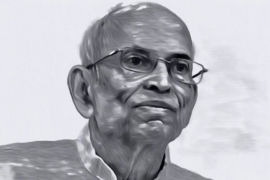In 2014, a 20-year-old student from Arunachal Pradesh walked into the Rajasthan Paneer sweet shop in Delhi, to ask for directions. A comment was made about his streaked hair. A scuffle ensued. The boy, Nido Taniam, was badly injured by the time the police arrived.
They took him to the police station. He revealed that he was the son of a Member of the Legislative Assembly (MLA) in Arunachal Pradesh. The cops were unfazed – and sent him back to the shop to apologise and pay the owners Rs. 8000. No First Information Report (FIR) was filed. No medical report was made on Nido’s condition.
That night, Nido died in his sleep.
His death triggered protests across the country. After some initial feet-dragging, the police stepped in and arrested the perpetrators. Two were convicted, and released on probation with a Rs. 10,000 ($154) fine the next year. It’s a small price to pay for murder.
Nido’s death spurred a debate about endemic racism in the country, but not about the role of the police. Why was protocol not followed by those we trust to enforce the law? Nido’s case is not the only example.
Copyright©Madras Courier, All Rights Reserved. You may share using our article tools. Please don't cut articles from madrascourier.com and redistribute by email, post to the web, mobile phone or social media.Please send in your feed back and comments to [email protected]











